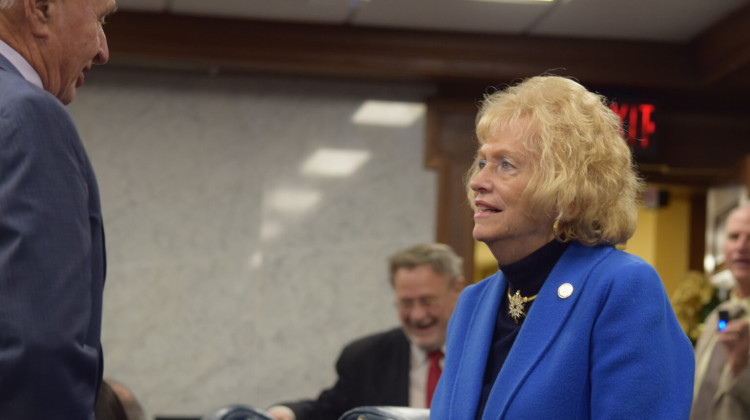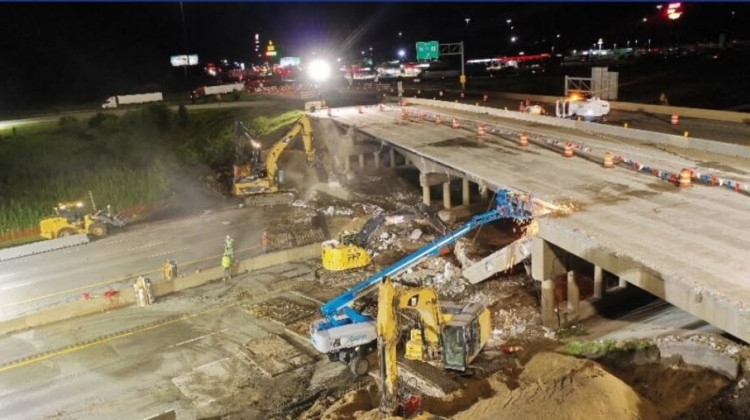
Much of Indiana is experiencing "abnormally dry" and "moderate drought" conditions.
U.S. Drought MonitorMONTICELLO, Ind. (AP) — The seasonal economy along a northern Indiana lake that’s a popular boating destination is feeling a pinch as the lake continues to shrink following weeks of scant rainfall and water releases required to protect federally endangered mussels.
Boaters, tubers and water skiers typically fill Lake Freeman each Labor Day weekend. But that wasn't the case last weekend and the lake is now down about four feet from its typical water level, WTHR-TV reported.
The lower water is hindering boating and creating water hazards as summer draws to a close in the lakeside city of Monticello, said Susan Wagner, who owns Susan’s Freeman Bay — a convenience store along the shoreline that's seen far fewer boating customers mooring to buy gasoline, snacks or Lake Freeman-themed souvenirs.
“We’re in one of the deeper parts of the lake and these people can’t even get out,” she said, pointing to boats marooned on their lifts over what's now dry land along the lake's receding shoreline.
The most recent update of the U.S. Drought Monitor shows that the area, located about halfway between Chicago and Indianapolis, is in the midst of a moderate drought. But the impact of that lack of rainfall is heightened by water releases a federal agency requires from Lake Freeman's dam.
Starting in 2014, the U.S. Fish and Wildlife Service mandated that a higher volume of water be released through the lake's Oakdale Dam during dry times to aid populations of federally endangered mussel species located south of the dam along the Tippecanoe River.
That federal mandate does not affect the Norway Dam that creates Lake Shafer, located just north of Lake Freeman and home to the Indiana Beach amusement park.
John Koppelmann, who sits on the lake levels task force for the Shafer and Freeman Lakes Environmental Conservation Corporation , calls Lake Freeman's current situation “very concerning." He said many boat owners can't access their vessels to get them into storage for the coming winter.
Steve Cuppy, who's also a member of the nonprofit conservation group, said a pending lawsuit against the U.S. Fish and Wildlife Service over the mandated water releases is scheduled for an Oct. 5 hearing in the D.C. Circuit Court of Appeals, the Journal & Courier reported.
Cuppy and Koppleman believe the U.S. Fish and Wildlife Service overestimated the amount of water needed to be released from the Oakdale Dam to sustain the endangered mussels.
“When we started studying it, the numbers didn’t seem to be right,” Koppelmann said.
Meanwhile, state Sen. Ron Alting, R-Lafayette, is working with lake stakeholders, state officials and U.S. government officials in hopes of reaching a resolution that's agreeable to conservation groups and lake enthusiasts.
Wagner, the convenience store owner, said she’d like to see some sort of compromise.
“That’s what I’m hoping for,” she said. “I completely respect the U.S. Fish and Wildlife Endangered Species Act … there just needs to be some middle ground. And some rain. Lots and lots of rain.”
 DONATE
DONATE






 Support WFYI. We can't do it without you.
Support WFYI. We can't do it without you.